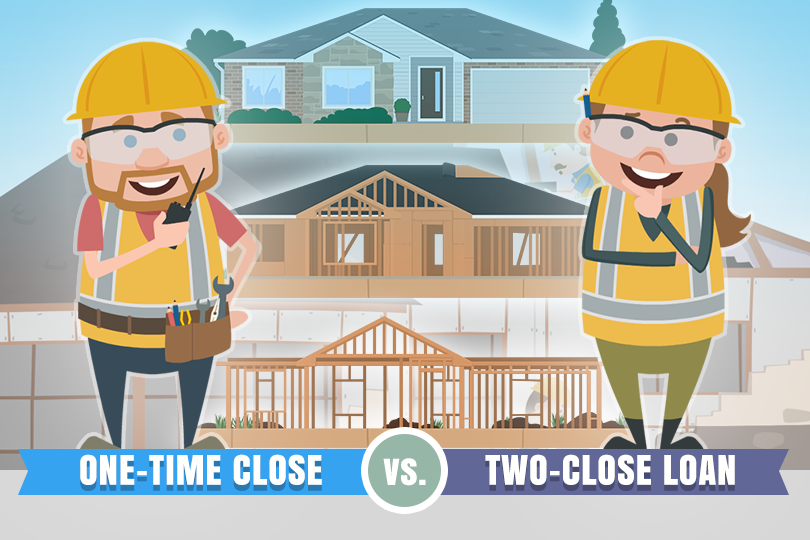One-Time Close Construction Mortgages vs. Two-Close Loans
May 20, 2023
The FHA One-Time Close loan is the mortgage you want to build a home from the ground up instead of buying someone else’s dream home.
But you will want to address some issues comparing construction loan options. It’s true that some lenders still offer the riskier two-close construction loan with two applications, two closing dates, and two different interest rates for the two loans.
Why go with a single close construction loan? The most obvious answer is that getting through the approval process for a single mortgage is a lot better for most applicants.
But that aside, FHA One-Time Close construction loans feature a single interest rate, and that rate is typically offered for a 30-year, fixed-interest mortgage. It is not a variable or adjustable interest rate loan.
A single-close or One-Time Close loan process has the interest rate is set before construction and the permanent loan interest rate is also pre-determined for a surprise-free experience. Compare that to the experience a borrower may have during the more complicated two-close construction loan.
In those cases, a loan for the construction phase of the process may be offered strictly as an adjustable-rate loan. A fixed interest rate is offered for the permanent loan (the second one), which is the mortgage.
Application time is tricky for two-close loans. You get no guarantees that you definitely will qualify both times for the two loans. What could go wrong between the first and second applications?
Consider the borrower who has credit problems after the construction loan is approved. If they get the construction loan but not the permanent loan, there are obvious problems that happen as a result. The danger of being approved once, but not twice is enough to make some reconsider a two-close construction loan even if they are offered more competitive interest rates than a One-Time Close mortgage.
There are ways to manage the higher interest payments. one way is to divide your monthly payment in half and pay the same mortgage amount, but in two installments each month.
Paying this way means you will make an extra mortgage payment each year without having spent any extra money, and that can go a long way toward helping you save money over the full term of the mortgage.
------------------------------
RELATED VIDEOS:
What You Need to Know About the Appraisal Fee
The Appraisal is an Important Requirement
Build Your Dream Home With a One-Time Close Loan

FHA Loan Articles
December 17, 2024The Federal Housing Administration provides mortgage insurance on loans made by FHA-approved lenders, making homeownership more attainable for those who might not qualify for conventional loans.
While financial factors like credit score and debt-to-income ratio are key to loan approval, other non-financial aspects can also cause a denial.
December 11, 2024FHA loans, insured by the Federal Housing Administration, are a popular choice for many homebuyers, especially those who need a lower downpayment or more forgiving credit qualifying requirements. FHA loans are primarily intended for primary residences—homes that borrowers will occupy as their main dwelling.
December 10, 2024The FHA announced increased loan limits for 2025, providing those seeking FHA-insured mortgages after January 1st with increased purchasing power. In this article, we explore the key aspects of these limits and their implications for your homeownership goals.
When you are approved for an FHA-insured loan, the FHA guarantees a portion of the loan to the lender, lowering lender risk...
December 9, 2024The Federal Housing Administration (FHA) helps people buy homes, especially those buying for the first time or who might not have perfect credit. In 2025, there is good news for FHA borrowers. FHA home loan limits are going up.
In most places, the FHA loan limit for a single-family home in 2025 is $524,225. This is more than it was in 2024. However, in expensive areas, where houses cost more, the limit can be as high as $1,209,750.
December 5, 2024The Federal Housing Administration (FHA) has some ground rules regarding cash-out refinances. These rules are designed to protect both you and the lender, ensuring you have enough ownership of your home and reducing the risk of foreclosure. How long must you own your home before you can apply for FHA cash-out refinancing?







